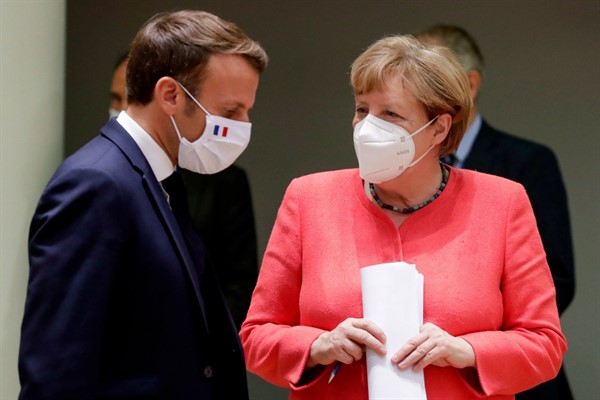Something about the idea of Europe becoming a strategic actor in global affairs brings to mind the old Irish saying: May you be in heaven a half hour before the devil knows you’re dead. Strategic autonomy has long been a recurring refrain for advocates of a more forceful Europe, one that is a rule-maker, rather than a rule-taker, in the shifting world order. But the European Union never seems to get any closer to realizing that goal, mainly due to internal divisions between member states over what interests to defend and advance, and wariness over the loss of sovereignty in an area of particular concern to national governments. For a clear-eyed if sympathetic observer, with one eye on Europe and the other on the world, there is the impression of a clock ticking.
This sense of urgency seems particularly keen this week. Developments in Belarus and the Eastern Mediterranean underscore the EU’s lack of strategic weight in its own neighborhood, while Chinese Foreign Minister Wang Yi’s “damage control” visit to Europe highlights the EU’s passive role in the gathering U.S.-China confrontation.
Five relationships in particular will be key if the EU wants to represent an independent pole to be reckoned with in the emerging multipolar world. All five are currently in flux. How the EU shapes them, or is shaped by them, will determine whether it is seated at the table—or served on it.

